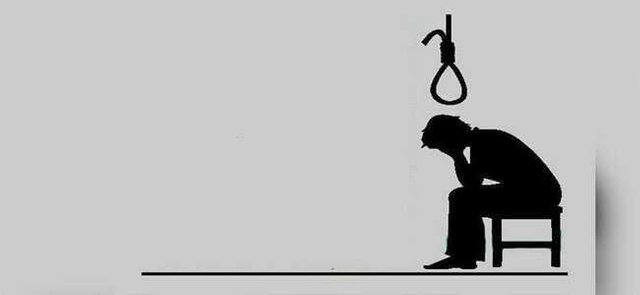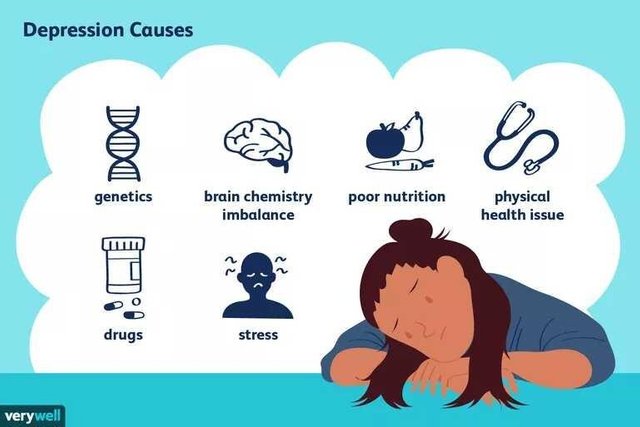
Image Source
What Is Depression?
Depression (major depressive disorder) is a common and serious medical illness that negatively affects how you feel, the way you think and how you act. Fortunately, it is also treatable. Depression causes feelings of sadness and/or a loss of interest in activities once enjoyed. It can lead to a variety of emotional and physical problems and can decrease a person’s ability to function at work and at home.
Phyciatry.org
When what we now call depression was first discovered in ancient Mesopotamia in the second millennium BC, at that time depression was termed to be a spiritual attack and anyone under this attack was advised to seek help from spiritualists.
Depression is a silent killer of young adults and youths in a research conducted by the national institute of mental health in 2014 shows that 15.7 million adults under the age of 18 have experienced one or more depressive episodes over the last year, and 2 out of 100 young adults are depressed.
depression.

Causes of depression
Depression can affect anyone at almost any age. And the reasons why some people grow depressed isn't always known. But, researchers suspect there are many causes of depression and it isn't always preventable. Overview
It's estimated that 10 to 15 percent of
the general population will experience clinical depression in their lifetime. And the World Health Organization estimates 5 percent of men and 9 percent of women experience depressive disorders in any given year.
Genetics and Biology
Twin, adoption, and family studies have linked depression to genetics. But, researchers are not yet certain about all the genetic risk factors for depression. But at this time, most researchers suspect that having parents or siblings with depression may be a risk factor.
Brain Chemistry Imbalance
Depression is believed to be caused by an imbalance in the neurotransmitters which are involved in mood regulation.
Neurotransmitters are chemical
substances which help different areas of the brain communicate with each other. When certain neurotransmitters are in short supply, this may lead to the symptoms we recognize as clinical depression.
Female Sex Hormones
It has been widely documented that women suffer from major depression about twice as often as men. Because the incidence of depressive disorders peaks during women's reproductive years, it is believed that hormonal risk factors may be to blame. Women are especially prone to depressive disorders during times when their hormones are in flux, such as around the time of their menstrual
period, childbirth , and perimenopause. In addition, a woman's depression riskdeclines after she goes through
menopause.
Circadian Rhythm Disturbance
One type of depression, called seasonal affective disorder (officially known as
major depressive disorder with seasonal pattern) is believed to be caused by a disturbance in the normal circadian
rhythm of the body.
Light entering the eye influences this
rhythm, and, during the shorter days of winter, when people may spend limited time outdoors, this rhythm may become disrupted.
People who reside in colder climates
where there are short, dark days may be at the highest risk.
Poor Nutrition
A poor diet can contribute to depression in several ways. A variety of vitamin and mineral deficiencies are known to cause symptoms of depression.
Some studies have found that diets
either low in omega-3 fatty acids or
with an imbalanced ratio of omega-6 to omega-3 are associated with increased rates of depression. In addition, diets high in sugar have been associated with depression.
Physical Health Problems
The mind and the body are clearly
linked. If you are experiencing a
physical health problem you may
discover changes in your mental health as well.
Illness is related to depression in two
ways. The stress of having a chronic
illness may trigger an episode of major depression. In addition, certain illnesses, such as thyroid disorders , Addison's disease and liver disease, can cause depression symptoms.
Drugs
Drugs and alcohol can contribute to
depressive disorders. But, even some
prescription drugs have been linked to depression.
Some drugs that have been found to be associated with depression include anticonvulsants, statins, stimulants, benzodiazepines, corticosteroids, and beta-blockers.
It's important to review any
medications that you've been prescribed and to speak with your physician if you are feeling depressed.
Stressful Life Events
Stressful life events, which overwhelm a person's ability to cope, may be a cause of depression.
Researchers suspect high levels of the hormone cortisol, which are secreted during periods of stress, may affect the neurotransmitter serotonin and contribute to depression.
Grief and Loss
Following the loss of a loved one,
grieving individuals experience many of the same symptoms of depression.
Trouble sleeping, poor appetite, and a
loss of pleasure or interest in activities are a normal response to loss.
The symptoms of grief are expected to subside over time. But when symptoms get worse, grief may turn into depression.
Reference very well mind.com
Image Source

How to deal with depression
• look for the signs of depression
• have your doctor explore possible medical causes behind your depression
• research to get a full understanding
• Get a therapists
• consider taking prescription medication
• Try alternative therapies or remedies like yoga, music, movies e.t.c
Making life changes
• Sleep well
• exercise
• eat healthy
• Make a decision to be happy
• maintain a good support network
• be around positive people
• be busy
• do fun things and treat yourself
• help others
Reference Wikihow
Hi! I am a robot. I just upvoted you! I found similar content that readers might be interested in:
https://www.verywellmind.com/common-causes-of-depression-1066772
Downvoting a post can decrease pending rewards and make it less visible. Common reasons:
Submit
Thanks for sharing...
Downvoting a post can decrease pending rewards and make it less visible. Common reasons:
Submit